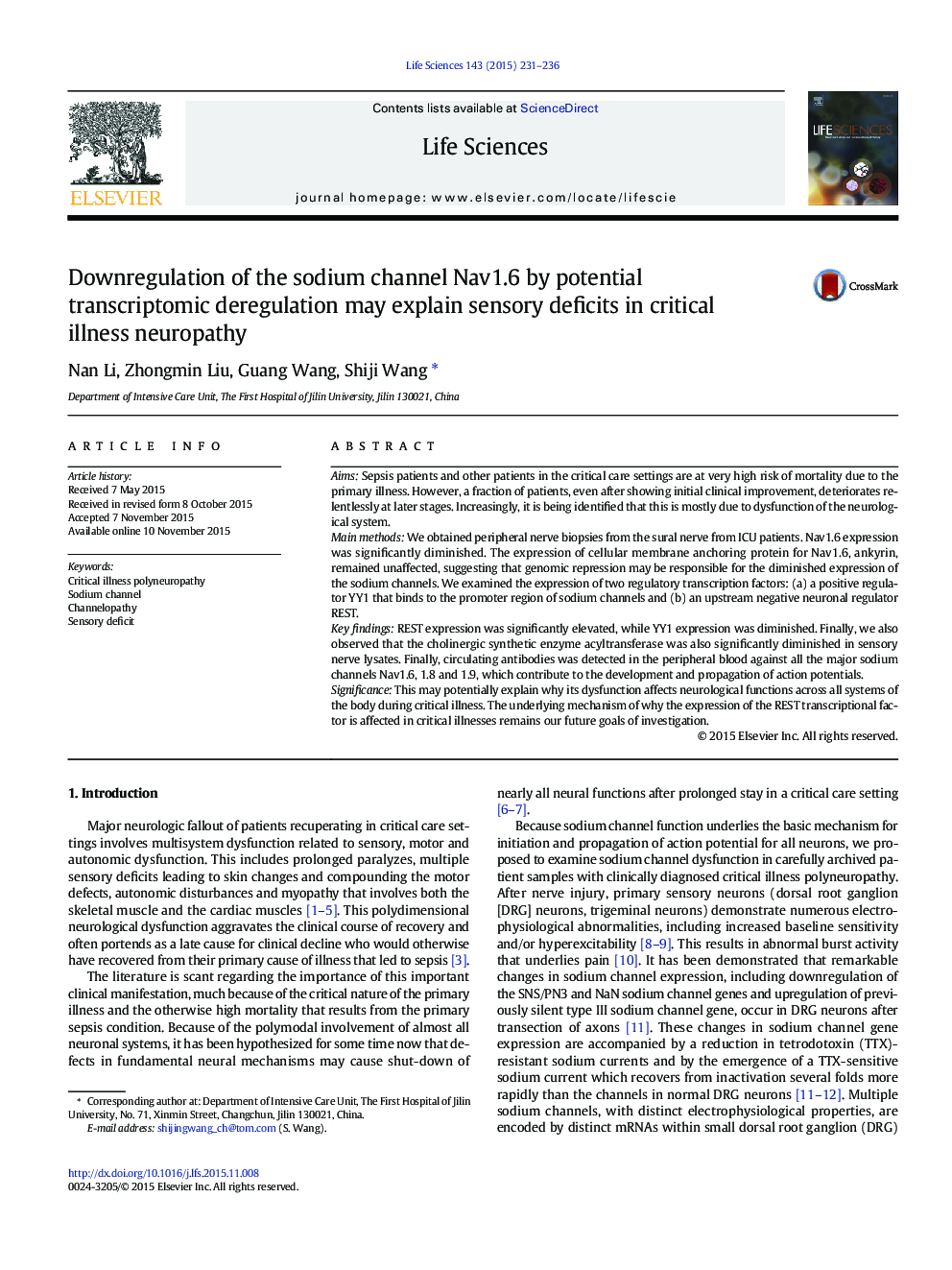| Article ID | Journal | Published Year | Pages | File Type |
|---|---|---|---|---|
| 2550718 | Life Sciences | 2015 | 6 Pages |
AimsSepsis patients and other patients in the critical care settings are at very high risk of mortality due to the primary illness. However, a fraction of patients, even after showing initial clinical improvement, deteriorates relentlessly at later stages. Increasingly, it is being identified that this is mostly due to dysfunction of the neurological system.Main methodsWe obtained peripheral nerve biopsies from the sural nerve from ICU patients. Nav1.6 expression was significantly diminished. The expression of cellular membrane anchoring protein for Nav1.6, ankyrin, remained unaffected, suggesting that genomic repression may be responsible for the diminished expression of the sodium channels. We examined the expression of two regulatory transcription factors: (a) a positive regulator YY1 that binds to the promoter region of sodium channels and (b) an upstream negative neuronal regulator REST.Key findingsREST expression was significantly elevated, while YY1 expression was diminished. Finally, we also observed that the cholinergic synthetic enzyme acyltransferase was also significantly diminished in sensory nerve lysates. Finally, circulating antibodies was detected in the peripheral blood against all the major sodium channels Nav1.6, 1.8 and 1.9, which contribute to the development and propagation of action potentials.SignificanceThis may potentially explain why its dysfunction affects neurological functions across all systems of the body during critical illness. The underlying mechanism of why the expression of the REST transcriptional factor is affected in critical illnesses remains our future goals of investigation.
